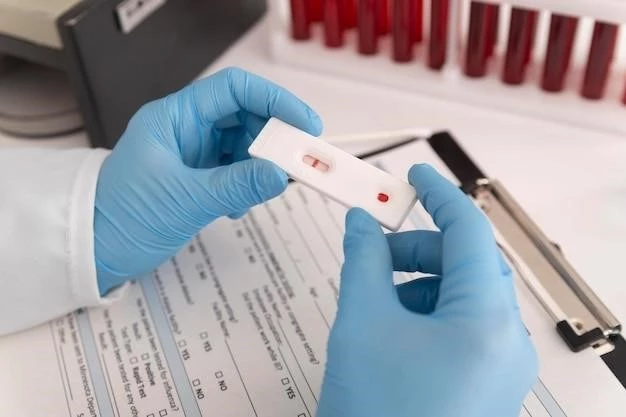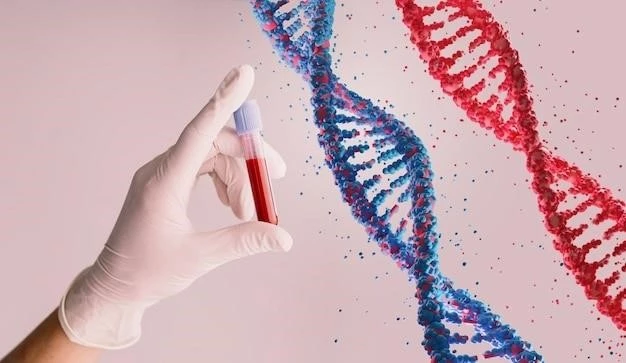Disease ⎼ Fanconi Anemia Type 2
Fanconi Anemia Type 2 is a genetic disorder characterized by bone marrow failure, chromosome instability, and increased cancer risk. Understanding the complexities of this disease is crucial for diagnosis and treatment. Explore the key aspects of this condition in the sections below.

Introduction to Fanconi Anemia Type 2
Fanconi Anemia Type 2, also known as FA or FANCD1, is a rare genetic disorder inherited in an autosomal recessive pattern. It is characterized by bone marrow failure, leading to various hematological abnormalities. Individuals with this condition also exhibit chromosome instability and defects in DNA repair mechanisms, increasing their susceptibility to certain cancers such as leukemias and solid tumors. Understanding the genetic basis and clinical implications of Fanconi Anemia Type 2 is essential for early diagnosis, appropriate management, and genetic counseling. Explore further sections to gain comprehensive insights into this complex disorder.
Understanding Bone Marrow Failure in Fanconi Anemia Type 2
In Fanconi Anemia Type 2٫ bone marrow failure is a critical manifestation that can lead to a range of hematological abnormalities٫ including low red blood cell counts (anemia)٫ low platelet counts (thrombocytopenia)٫ and decreased white blood cell counts (neutropenia). This condition results from impaired hematopoiesis٫ the process by which blood cells are produced in the bone marrow. Patients may experience symptoms such as fatigue٫ increased infections٫ and easy bruising or bleeding. Regular monitoring of blood counts and early intervention are vital to manage bone marrow failure in Fanconi Anemia Type 2. Consult with healthcare providers for specialized care and treatment options tailored to individual needs.
Chromosome Instability and DNA Repair in Fanconi Anemia Type 2
Individuals with Fanconi Anemia Type 2 experience defects in DNA repair mechanisms, leading to chromosome instability. This instability can result in genetic mutations and aberrations that contribute to the development of cancer. Understanding the role of DNA repair pathways in maintaining genomic integrity is crucial in managing the increased cancer risk associated with this condition. Regular genetic counseling and monitoring for potential malignancies are fundamental in the care of individuals with Fanconi Anemia Type 2. Collaborate with healthcare professionals specializing in genetic disorders to assess the impact of chromosome instability and DNA repair deficiencies on disease progression and cancer susceptibility.
Hematological Abnormalities Associated with Fanconi Anemia Type 2
Fanconi Anemia Type 2 is characterized by various hematological abnormalities that can significantly impact an individual’s health. These abnormalities include low red blood cell counts (anemia), which can lead to fatigue and weakness, low platelet counts (thrombocytopenia) resulting in easy bruising and bleeding, and decreased white blood cell counts (neutropenia) increasing susceptibility to infections. Managing these hematological challenges requires a multidisciplinary approach involving hematologists, oncologists, and other healthcare professionals. Regular blood tests and close monitoring are essential to address and treat these abnormalities effectively. Seek medical guidance to develop a personalized treatment plan tailored to your specific hematological needs.
Increased Cancer Risk in Fanconi Anemia Type 2
Individuals with Fanconi Anemia Type 2 face an elevated risk of developing various types of cancers٫ including leukemias and solid tumors. The underlying genetic abnormalities in DNA repair pathways predispose them to malignant transformation. Early detection and proactive cancer screening protocols are crucial in managing the heightened cancer susceptibility in these patients. Collaborate with oncologists and genetic counselors to establish tailored surveillance strategies and personalized treatment plans based on the increased cancer risk associated with Fanconi Anemia Type 2. Stay vigilant and proactive in monitoring for any signs or symptoms suggestive of malignancies٫ and promptly seek medical attention for timely intervention and management.
Overview of Fanconi Anemia (FA) and FANCD1
Fanconi Anemia (FA) encompasses a group of genetic disorders characterized by bone marrow failure, chromosome instability, and an increased cancer risk. Fanconi Anemia Type 2, also known as FANCD1, is a specific subtype within this spectrum. Understanding the broader context of FA as a rare genetic condition affecting multiple organs and systems is essential to grasp the complexities of Fanconi Anemia Type 2. Explore the interplay between FA and FANCD1 in the context of bone marrow failure, chromosome instability, DNA repair mechanisms, and cancer susceptibility. Stay informed about advances in genetic research and therapeutic strategies targeting FA subtypes like FANCD1 to improve patient outcomes and quality of life.
Understanding the FANC Subtypes Involved in Fanconi Anemia Type 2
Fanconi Anemia Type 2 is part of a group of genetic disorders known as the FANC subtypes٫ each associated with specific gene mutations impacting the body’s ability to repair DNA. These subtypes play a crucial role in determining the clinical manifestations and severity of Fanconi Anemia٫ including bone marrow failure and cancer predisposition. By understanding the diverse FANC subtypes٫ healthcare providers can tailor diagnostic approaches٫ treatment strategies٫ and genetic counseling to individuals with Fanconi Anemia Type 2. Stay informed about the latest research on FANC subtypes to enhance the management and care of patients with this complex genetic disorder.
Diagnosis and Testing for Fanconi Anemia Type 2
Diagnosing Fanconi Anemia Type 2 involves a comprehensive approach that includes clinical evaluations, genetic testing, and specialized laboratory assessments. Genetic tests can identify mutations in the FANCD1 gene, confirming the presence of this specific subtype. Additionally, functional tests like chromosome breakage analysis can provide valuable insights into DNA repair capabilities. Early and accurate diagnosis is pivotal in initiating timely interventions and personalized treatment plans for individuals with Fanconi Anemia Type 2. Collaborate closely with medical geneticists and hematologists to determine the most appropriate diagnostic strategies and testing modalities based on individual clinical presentations and family histories.
Management and Treatment Approaches for Fanconi Anemia Type 2
Effective management of Fanconi Anemia Type 2 requires a multidisciplinary approach involving hematologists, oncologists, genetic counselors, and other specialists. Treatment strategies focus on addressing hematological abnormalities, managing cancer risks, and providing supportive care. Therapies such as hematopoietic stem cell transplantation may be considered for bone marrow failure, while regular cancer screenings and surveillance protocols aim to detect malignancies early. Supportive care measures, including blood transfusions and antibiotics, can help alleviate symptoms and prevent complications. Stay proactive in managing the diverse aspects of Fanconi Anemia Type 2 by collaborating with a team of healthcare professionals to tailor treatment plans to individual needs and optimize outcomes.
Research and Future Directions in Fanconi Anemia Type 2
Ongoing research in Fanconi Anemia Type 2 aims to deepen our understanding of the underlying genetic mechanisms٫ improve diagnostic capabilities٫ and develop targeted therapeutic interventions. Emerging technologies such as gene editing and stem cell research offer promising avenues for exploring potential treatments that address the root causes of this complex genetic disorder. Stay informed about the latest advancements in Fanconi Anemia Type 2 research to advocate for access to cutting-edge therapies and participate in clinical trials that may shape the future of care for individuals affected by this condition. By staying engaged with the scientific community٫ patients٫ caregivers٫ and healthcare providers can contribute to the continued progress in enhancing outcomes and quality of life for those living with Fanconi Anemia Type 2.
Conclusion
In conclusion, Fanconi Anemia Type 2, a rare genetic disorder falling under the broader spectrum of Fanconi Anemia, presents challenges related to bone marrow failure, chromosome instability, DNA repair deficiencies, and increased cancer susceptibility. Early diagnosis, multidisciplinary management, and personalized treatment approaches are crucial for individuals living with this complex condition. Stay proactive in seeking specialized care from healthcare providers experienced in genetic disorders, hematological conditions, and cancer predisposition syndromes. By staying informed about the latest research, advancements in diagnostics, and treatment modalities, you can empower yourself or your loved ones to navigate the complexities of Fanconi Anemia Type 2 with resilience and hope.
